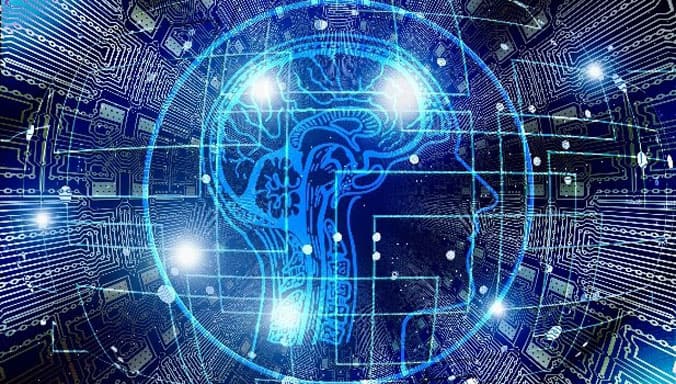Latest News
What is technology?

What is technology
Technology is a set of concepts and scientific knowledge that humans use to achieve precise goals. They can solve specific problems of individuals or meet some of their needs.
It is a broad concept covering all aspects and disciplines in the field of electronics, art, or. For example: creating robots for repetitive tasks or for animal cloning.
Types of technology
Technologies can be classified in different ways based on the characteristics considered.
Product Type:
- Hard technology. They use rigorous science elements such as engineering, mechanics, math, physics, chemistry. The derived product is visible and clear, meaning it is the production of material products. For example: making mobile devices.
- Soft technology. They are based on soft sciences such as anthropology or sociology, psychology, and economics. Frequently, they are used to improve processes or increase efficiency in an organization or company. The derived product is invisible or obvious because it contains a detailed description of services, strategies, and theories. For example Software development.
According to American sociologist James David Thompson:
- Flexible technology. They are used in different fields, that is, they have many uses. For example, Microchips used in phones and computers.
- Fixing technology. They are used for the production of specific products or specific areas. They are technologies designed and manufactured for the same purpose. For example, rat poison is used only to get rid of this creature.
Depending on the level of innovation:
- High-tech. Also known as “high-tech” or “latest technology”, these are highly advanced technologies and can be used at specific times and places.
- Appropriate technology. The design of these technologies takes into account the environmental, social and economic impact of a particular society.
According to your application:
- Operating technology. They are obtained after a long period of research, observation and experience.
- Computer technology. They are developed by the manufacturer of a particular product.
- Product technologies. They combine tools and knowledge to produce a specific product.
Origin and evolution of technology
Of course, people have tried to develop technology since the beginning of the story (technology improves the quality of life). Over the years, human inventions have changed the world as it is known today.
To begin with, technology emerged when technology (initially practical) began to be associated with science, which shaped the way of production.
During different periods of the entire human race, the pattern of contact between humans and themselves and their surroundings has changed:
- The Stone Age (paleolithic, mesolithic, and neolithic). It is characterized by the development of agriculture and provides basic tools for using stone to make containers and manage land. The invention of fire is one of the first technologies to bring significant benefits to mankind.
- Metal age. It is characterized by the development of agriculture, the domestication of animals, and the change from a nomadic way to a sedentary lifestyle. Developed copper, bronze, and iron. The invention of papyrus and pottery is attributed to Egyptian civilization. The Romans developed advanced agriculture, improved ironmaking processes, and developed advanced civil and military engineering. Chinese civilization is believed to have invented paper, iron plow, compass, propeller, cross, and gunpowder.
- middle-aged. The emergence of The modern printing press was one of the major milestones of this period.
- The Industrial Revolution. This is a period of social, economic, technological, and cultural transformation, which is characterized by the growth of urbanization and industrialization. The best invention this time is the steam engine. Telegraphs, light bulbs, telephones, and automobiles originated in the 19th century.
- The twentieth century. Innovations in aircraft, radio, television, and computers, as well as major advancements in nuclear technology, coupled with the application of technology in technology and space technology, have brought significant technological advancements. The information and telecommunications revolution or information age (1985-2000) took place within this century.
- 21st century. Technological progress (also known as a scientific and technological revolution or information revolution) has developed rapidly. Technology and communications will change the industry. New technologies emerged after the Second World War. Its rapid development and integration into society have had major consequences. Considering the nature of risk, one must be able to control and control the risk.
The importance of technology
Technological innovation and the emergence of new tools are the keys to human and social development. Technology provides great inventions that can increase productivity, save time, improve quality of life, simplify social life, shorten distances, and understand the earth.
The rise of technology is the need for human beings. They can use scientific and technical knowledge to solve problems and meet their needs, thus meeting the needs of individuals and collectives. It allows people to fully understand the surrounding environment and modify it to achieve their goals. For centuries, humans have invented and modified tools to improve their lifestyles.
Technology has brought about medical innovation, the advancement of information access, communication and transmission, and simplification of tasks.

Technical characteristics
- Life exists in all areas of personal life and society, such as work, education, medicine, communication.
- It allows us to create new things: through it, people can change the surrounding environment.
- This is why most humans invented.
- If used properly, it can improve the quality of human life; if abused properly, it can cause serious harm to individuals and society.
- may change at any time (technical changes have been aborted).
- Its development includes cultural, labor, and social changes.
- Improper technological development will create social and economic gaps within communities or between regions or countries.
Sebastian was born and raised in the busy city of Abbottabad. As a journalist, Saad Mushtaq has contributed to many online publications including the PAK Today and the Huffing Post. In regards to academics, Saad Mushtaq earned a degree in business from the Abbottabad UST, Havelian. Saad Mushtaq follows the money and covers all aspects of emerging tech here at The Hear Up.Thanks










